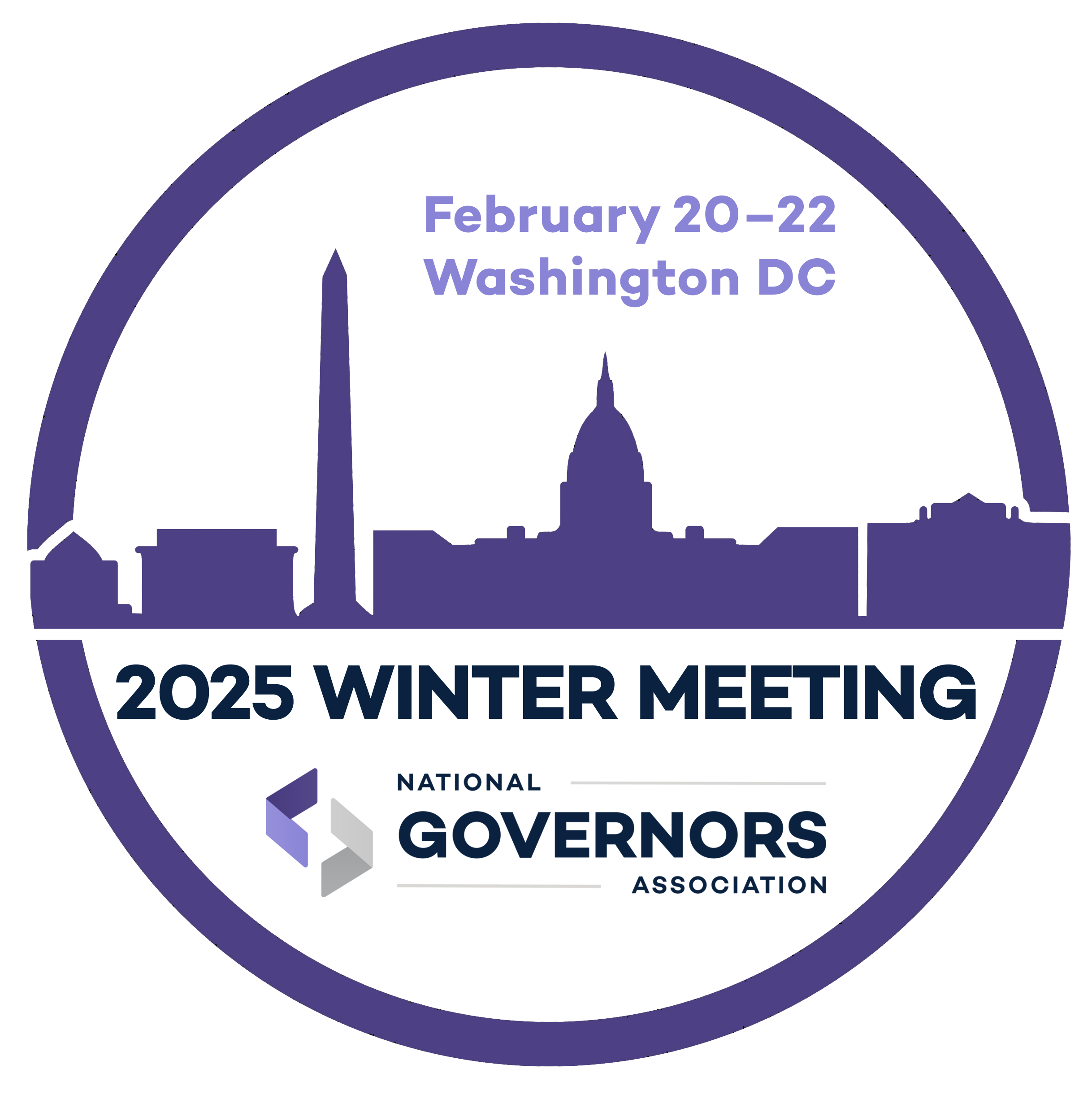Governors, First Spouses, industry partners and national experts met in Boston, Massachusetts, to discuss K-12 computer science education, the focus of the NGA Chairman’s Initiative.
By Catherine Van Ness
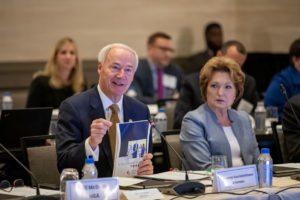
On May 19, 2022, NGA Chairman Arkansas Governor Asa Hutchinson joined a bipartisan group of five other Governors, with 11 Governors’ offices represented overall, for a convening in Boston to discuss connections between K-12 computer science education and the workforce. Education and industry experts joined Governors and First Spouses to discuss the 21st century workforce, Girls Who Code afterschool programs, and bipartisan strategies to bolster K-12 computer science education across the country.
Governor Hutchinson opened the meeting by summarizing recent NGA Chairman’s Initiative events, including the opening plenary session at NGA’s Winter Meeting and a Governors convening in Bentonville, Arkansas. He also announced the release of a toolkit that the Arkansas Department of Education Office of Computer Science developed with external partners, to assist states in expanding computer science education.
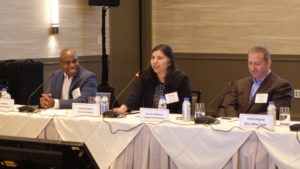
During the first panel, Governors and First Spouses heard from industry leaders on computing and related career pathways. Governor Hutchinson moderated the discussion with Yashoda Dadkar, Research Scientist at Amazon Robotics; Olawale Oladehin, Director at Amazon Web Services; and Danner Stodolsky, Vice President at Google Cloud Platform. The panelists shared their personal experiences with computer science, from programming in the fourth grade to a high school career day sparking an interest in technology to the limited opportunities they had for engaging in coding or computer science in their K-12 education experience. The panelists emphasized that students like to understand the application of what they are learning and to see relevant influencers as spokespeople in the field and closed by celebrating the many more pathways into computing careers that are open to youth today.
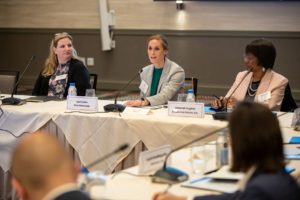
Massachusetts Governor Charlie Baker then introduced the second panel discussion, which was moderated by Daniel Voloch, Chief Program Officer at Girls Who Code. The panelists, who spoke about their experiences facilitating computer science programs for K-12 students, included: Deborah Hughes, CEO of Brookview House, which serves women and children experiencing homelessness; Lori Cullen, a teacher facilitator for Girls Who Code; and Erica Payne, a parent facilitator for Girls Who Code. Deborah explained that their program has been adapted to focus on youth development and to accommodate the behavioral needs of the girls participating at their site. Lori and Erica both shared strategies for engaging parents in their children’s work, especially in elevating for parents and families the importance of computer science education and digital literacy in providing their children with the foundational skills and knowledge needed to succeed in today’s workplace.
The meeting then transitioned to a roundtable discussion amongst the Governors, moderated by Scott Pulsipher, President of Western Governors University. The themes raised by multiple Governors included the importance of executive commitment and support paired with local enthusiasm and action, increased awareness and access for both students and parents, intentionally including all students in computer science education, maintaining efforts to close the digital divide, and ensuring digital equity and growing partnerships, particularly with industry partners focused on workforce development.
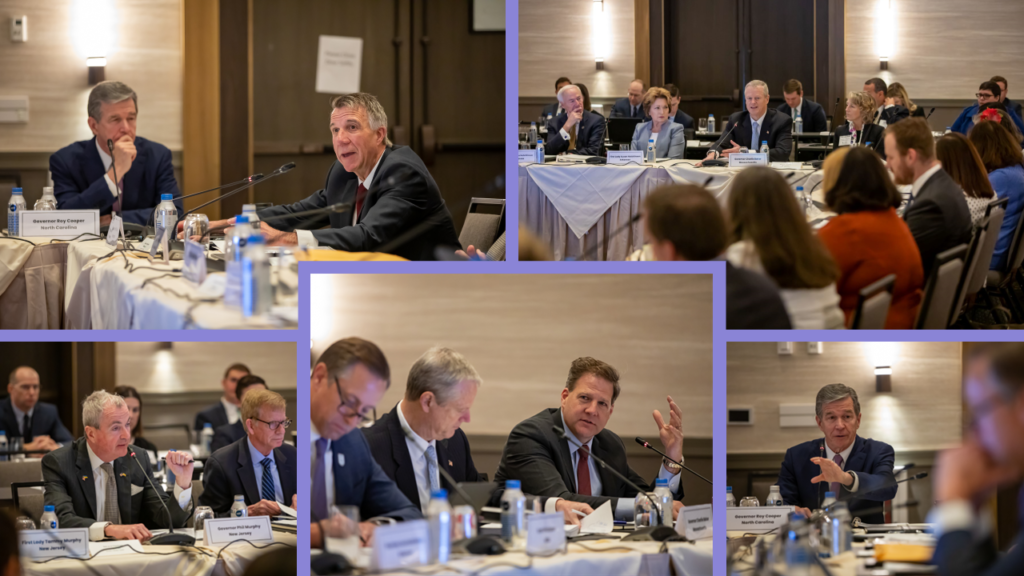
Leading off the roundtable discussion, NGA Chairman Arkansas Governor Asa Hutchinson shared that he is proud to see the progress that Arkansas has made, such as giving students the computing skills to be able to tackle very practical problems and the resources to benefit from incentives when they achieve a high score on Advanced Placement exams. NGA Vice Chair New Jersey Governor Phil Murphy celebrated the progress that has been achieved with his CS for All initiative and urged further progress in supporting girls and students of color to participate in computer science classes. Massachusetts Governor Charlie Baker explained his state’s progress building up from a foundation of a computer science education framework and growing the number of teachers certified in the subject to investments of over $100 million to equip vocational technical schools with cutting-edge technology. North Carolina Governor Roy Cooper stressed the importance of access for every household to high-speed internet and devices, which is why he created the Office of Digital Equity and Literacy, the first such department in the country. Vermont Governor Phil Scott shared that the Governor’s Institutes of Vermont, a summer learning program, will include computer science education opportunities for high schoolers, and he noted that would like to see other afterschool and summer learning programs add computing components. New Hampshire Governor Chris Sununu relayed what he saw on recent visits to elementary and middle schools – for some students, computer science was a subject that engaged them and kept them interested in school – and he emphasized the importance of using relatable content to captivate students.
To close the meeting, Governor Hutchinson led a stakeholder discussion with all attendees on computer science education and the workforce of the future. The National Governors Association looks forward to continuing to highlight the Chairman’s Initiative at the annual Summer Meeting in Portland, Maine, this July.



